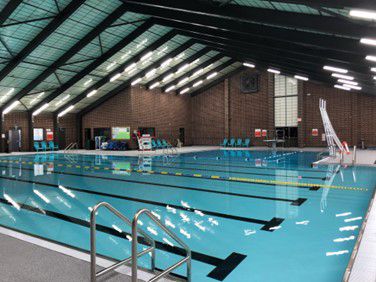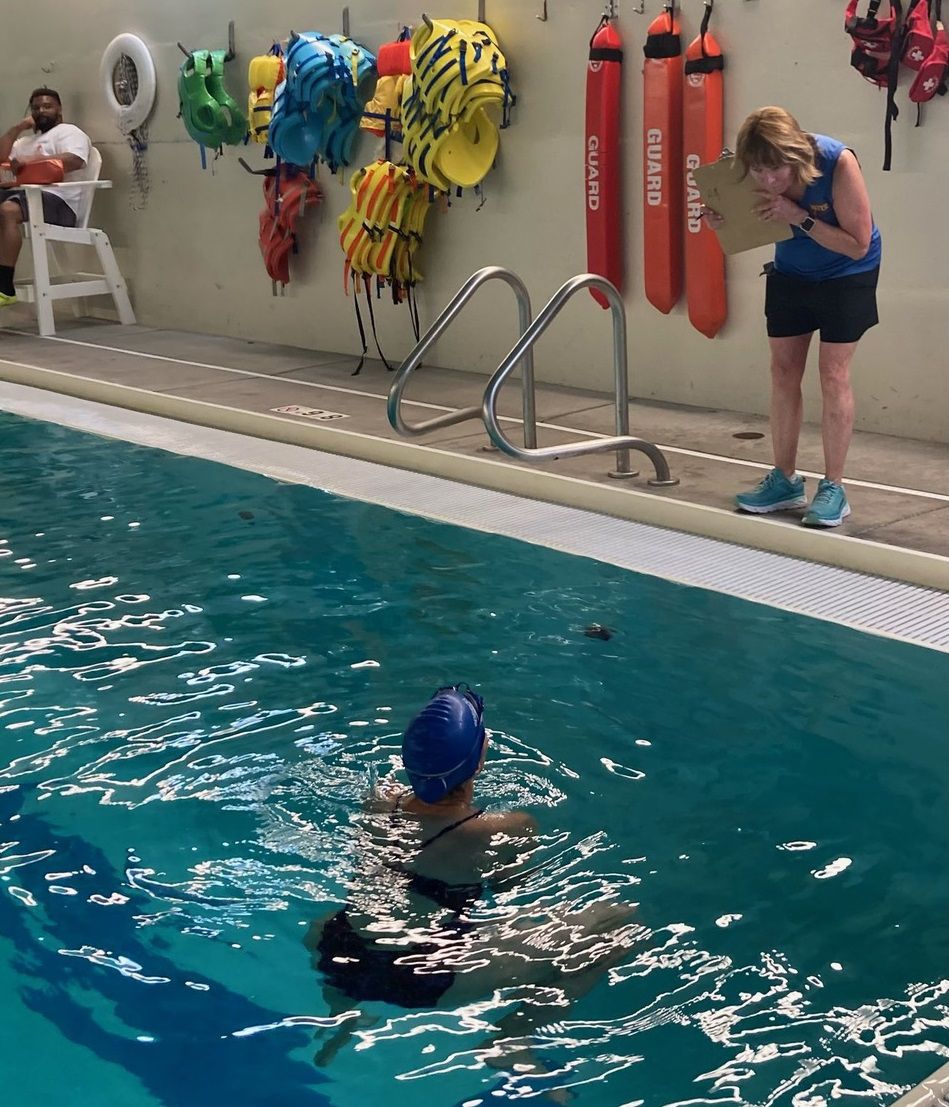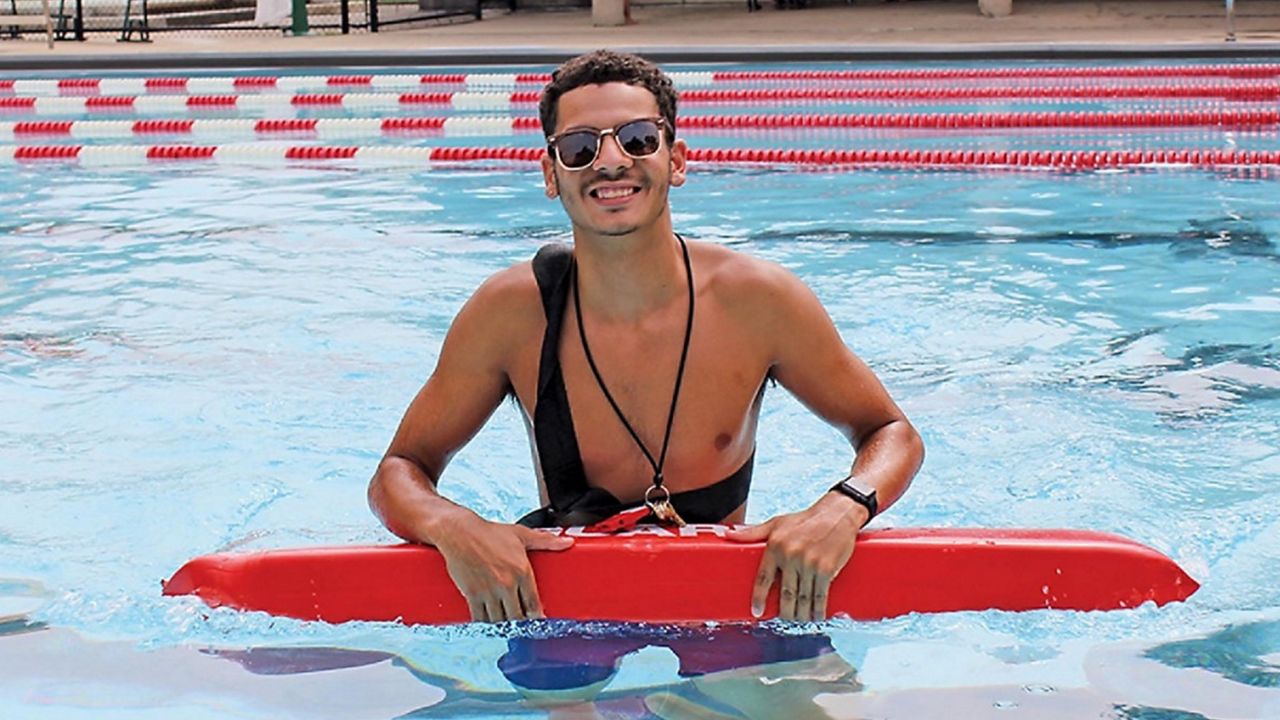CINCINNATI — It’s likely more than half of Cincinnati’s public pools will remain closed when swimming season beings this June. In fact, it’s possible more than a few of them may remain dry all summer.
The reason? They simply don’t have enough people to fill all the lifeguard chairs.
What You Need To Know
- The recreation agencies in Dayton and Cincinnati are struggling to find lifeguards to keep public pools open
- Cincinnati has enough staff to only open 10 of its 23 pools, while Dayton can only operate two of its three year-round pools
- Noted obstacles range from the pandemic to certification issues to relying too much on teenagers
- Both agencies hope to recruit more lifeguards throughout the season to open more pools
The Cincinnati Recreation Commission (CRC) needs 250 lifeguards to open all its pools to start the season, said Chris Pike, marketing manager for CRC.
He didn't provide specific staffing numbers, but Pike mentioned CRC has enough lifeguards to “safely open” at least 10 of its 23 outdoor pools on Monday, June 5. Traditionally, three of them will open a week earlier for Memorial Day weekend.
In Dayton, the city only has enough staff to open two of its year-round indoor pools — Northwest Recreation Center on Tuesdays and Thursdays, and Lohrey Recreation Center on Wednesdays and Fridays. Both are open on Mondays.
They’d also be open on Saturdays, just like Dayton’s recreation centers, if not for the lifeguard shortage, said Lisa Barhorst, with the Dayton Department of Recreation.

The lifeguard shortage isn’t unique to southern Ohio. Similar issues are taking place across the United States.
Last year, the lifeguard shortage led to roughly a third of the country’s more than 300,000 public swimming pools closed or operating on a sporadic schedule, according to data from Newsweek.
“It appears it’ll be just as bad as last year, if not worse,” Bernard J. Fisher II, director of health and safety for the American Lifeguard Association. He said these factors aren’t just limited to the United States, either.
“It’s Germany. It’s France. It’s everywhere,” he added.
Fisher described the staffing problem as something years in the making. Factors mentioned ranged from the pay scale for lifeguards to the cancelation of certain types of work visas that allowed exchange students to come to the U.S. to work over the summer.
The latter point was a byproduct of the COVID era, Fisher said. The pandemic also affected local training, he said. Lifeguard certification only lasts for two years, and many people let theirs lapse during the shutdown.
Because many pools stayed closed for a time, other young people weren’t being trained to swim, let alone become lifeguards, he added.
Barhorst described the issue as being cyclical. Dayton Recreation currently has two aquatic specialists on staff and six temporary guards on staff. Because of the lifeguard shortage, the agency hasn’t been able to teach swimming lessons since Dec. 2022.
Dayton doesn’t have any city-owned outdoor pools.
To earn certification, a person must swim 300 yards continuously, tread water for two minutes using only their legs, and retrieve a 10-pound brick underwater and swim back to the starting point.
“Even if we could operate our own lifeguarding course, finding people who can get through the training successfully has been really hard,” Barhorst said.
The issue isn’t just a challenge for city-owned pools, either. Ziegler Pool in Over-the-Rhine is one of the first pools set to open for the season on May 13.
While the Cincinnati Center City Development Corporation (3CDC) operates Ziegler Park, the nonprofit relies on a third-party company, SwimSafe, to manage the day-to-day operations of the pool. That includes hiring, training and managing the lifeguards.
“We have 23 positions filled. While we may still hire a couple more lifeguards, we are ready to be fully operational on May 13,” said Joe Rudemiller, a spokesperson for 3CDC.
Despite having a national organization handling its hiring, Ziegler Pool isn’t immune to the issues experienced across the U.S.
A staffing shortage led to them closing an hour earlier than usual on weekends. They also shortened the pool season by one week, closing Sept. 11 instead of the planned Sept. 18, because they didn’t have enough lifeguards.
But while teens and college students have been the bedrock of lifeguarding, they can also be a part of the challenge.

In places like Dayton and Cincinnati, where the swimming season isn’t year-round, so availability throughout the year isn’t as big a deal, Fisher said. But their age and life circumstances play a factor.
Many students aren’t out of school on Memorial Day, and then they often go back to school before the end of the swim season. Throwing in sports leagues, family vacations, living away for college and the desire to take part in other jobs and programs, and they’re just not as available as they once were, Fisher said.
Recruiting for lifeguards is a year-round process, Pike said. He noted that if they can add ranks throughout the summer, CRC might adjust hours of operation and even open a few more pools. That’s what happened last year.
With staggered opening dates and continued training and recruitment, CRC hopes to have 70% of its pools open by mid-June, Pike said.
CRC lifeguards make between $16 and $18 per hour to start, and last year they got bonuses to stay on all year. Applicants 14 to 24 can get paid while taking their American Red Cross lifeguard training. There were 20 cadets in CRC’s most recent class.
As part of their recruiting, Fisher believes they should stop viewing lifeguarding as a job only for “18- to 20-year-olds.” He thinks adults, even seniors, represent an untapped resource.
A few of Fisher’s “perfect examples” are people who work part-time at night, adults with free time on weekends and retirees. Last year, Cincinnati City Council Member Liz Keating, a former college swimmer and parent, volunteered as a CRC lifeguard.
Dayton has reached out to adults and seniors who regularly swim at its recreation centers. That helped them land the services of Allen Hamilton, 76.
A lifeguard as a teen and then in the military, Hamilton returned to active duty five years ago.
“It’s the best job,” Fisher said, “and regardless of your age, it’s a great opportunity to give back to your community.”
Pike reiterated that pool season is still more than a month away. They're pushing hard in traditional recruiting routes — social media, TV interviews, stories like this one. They’re also using yard signs and banners at their recreation centers. CRC reached out to local universities to see about out-of-town students who may stick around for the summer, Pike said.
The agency’s next recruiting class is in May.
“We’re still optimistic,” Pike added. “We’re going to continue to recruit and make sure we have enough people so people can safely enjoy pools this summer.”



